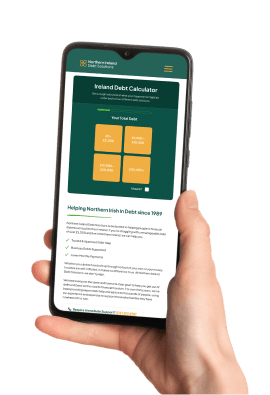When a lender credit-checks a potential customer, it’s the individual who is checked rather than their address. So if a person you live with owes money, you won’t be affected unless you’re also financially linked.
Financial linking occurs when you take out joint borrowing, or a joint rental agreement, for example. This is known as financial association. If you’re not financially associated, the fact that you live in the same property doesn’t expose you to problems in your own right.
What is financial association?
The term ‘financial association’ is used when two people take out joint lending, or there is a distinct linking of finances in another form. This could include acting as a guarantor for the person you live with, or if they act as a guarantor for you.
Guarantors provide additional security to lenders in the event of a borrower’s default. Although it’s not a joint loan, being a guarantor means you become liable for the outstanding debt and have to repay as if the loan is yours.
Financial linking also occurs if they’re an additional card holder on one of your store cards or credit cards. If they’ve run up debts on the card, this makes you liable for the full amount as the account is in your name.

Credit-checking consumers and financial linking
Just because you live together, it doesn’t mean you’ll be affected by your housemate’s debts when you apply for a loan. Credit checks now take place in a different manner, in that the potential borrower is the focus of the check, not the address.
So unless you are financially connected to the person you’re living with, their debt doesn’t become an issue. If you are financially linked and apply for borrowing, the lender may decide to take account of your housemate’s debt situation.
The fact that the person you’re connected with has missed payments, or paid late, will be visible on the credit check. Although their debt situation doesn’t directly affect your credit score, the lender may take it into account when you try to obtain a loan, which could be detrimental to the application.
There is a method of dealing with this situation, however, and it’s called ‘financial disassociation.’
What is financial disassociation?
To financially ‘unlink’ from a joint borrower, you’ll need to have ended all joint credit arrangements or loans. You can contact the credit reference agencies and file a notice of disassociation which will unlink you, and ensure you aren’t affected by their debts in the future.
The main credit reference agencies in the UK are Equifax, TransUnion, and Experian. You should submit a notice to each agency, as they tend to hold different types of information about you.
If you’re worried that your credit rating may be affected by the debt of someone you live with, Northern Ireland Debt Solutions can provide professional advice. We’ll establish your liabilities if you’re a guarantor for their loan, and ensure you’re aware of the consequences of being financially linked. Call one of the team for help and advice.
Browse more topics related to this article
Get Started – Contact The Team Today
Ready to take the first step to a brighter future? Contact Northern Ireland Debt Solutions today to understand your next steps.





